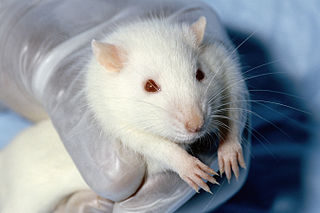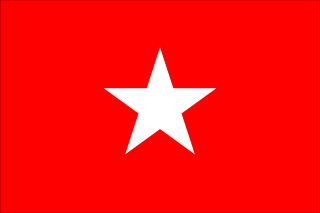Related Research Articles

The Communist Party of Nepal (Unified Marxist–Leninist) (Nepali: नेपाल कम्युनिष्ट पार्टी (एकीकृत मार्क्सवादी-लेनिनवादी), romanized: nēpāl kamyuniṣṭ pārṭī (ēkīkṛt mārksavādī-lēninavādī); abbr. CPN (UML)) is a communist political party in Nepal. The party emerged as one of the major parties in Nepal after the end of the Panchayat era.

Chhaupadi is a form of menstrual taboo which prohibits women and girls from participating in normal family activities while menstruating, as they are considered "impure". Chhaupadi is said to be practiced primarily in the western part of Nepal, but the same is true for city dwellers also. It is practiced all over the country with different names and practiced in different ways.
The Declaration of Helsinki is a set of ethical principles regarding human experimentation developed originally in 1964 for the medical community by the World Medical Association (WMA). It is widely regarded as the cornerstone document on human research ethics.

Animal testing regulations are guidelines that permit and control the use of non-human animals for scientific experimentation. They vary greatly around the world, but most governments aim to control the number of times individual animals may be used; the overall numbers used; and the degree of pain that may be inflicted without anesthetic.

The Ministry of Energy, Water Resources and Irrigation is a governmental body of Nepal that governs the development and implementation of energy including its conservation, regulation and utilization. It furthermore develops operates electricity projects including hydropower projects. Due to the importance of water resources in Nepal, the ministry focuses on the development and utilization of hydropower. In 2018, under the Second Oli cabinet, the portfolio of the ministry was enlarged and the portfolios of Water Resources and Irrigation was added to the then Ministry of Energy, while the Ministry of Irrigation was discontinued.
The Ministry of Forests and Environment is a governmental body of Nepal responsible for the conservation of forests and managing the environment in the country. Its main purposes are to enhance sustainable growth of the forest and water sectors and to manage the biodiversity, flora and fauna and also to increase the development of forest related enterprises in order to combat poverty throughout the rural areas of Nepal.

A gaunpalika is an administrative division in Nepal. The Ministry of Federal Affairs and Local Development dissolved the existing village development committees and announced the establishment of this new local body. It is a sub-unit of a district. There are currently 481 rural municipalities.

The Second Oli cabinet, also known as the Oli cabinet, 2018, was the Government of Nepal from 15 February 2018 to 13 July 2021. It initially formed as a majority coalition on 15 February 2018, after Khadga Prasad Sharma Oli was elected as the new Prime Minister of Nepal following the 2017 general election. Oli's candidacy was supported by the Communist Party of Nepal and the Communist Party of Nepal. He assumed his office with two ministers and the remaining ministers were added at later points. The CPN withdrew its support from the government in May 2021, reducing it to a minority, and after the dissolution of the House of Representatives, it turned into an interim government. The cabinet was replaced by the fifth Deuba cabinet, formed after the Supreme Court ordered the appointment of Nepali Congress president Sher Bahadur Deuba as prime minister under Article 76 (5) of the Constitution of Nepal.

The National Medical Commission (NMC) is a statutory body in India that regulates medical education, medical professionals, institutes, and research. Established on 25 September 2020, it replaced the Medical Council of India. The Commission grants recognition of medical qualifications, gives accreditation to medical schools, grants registration to medical practitioners, and monitors medical practice and assesses the medical infrastructure in India.

Sukraraj Tropical and Infectious Disease Hospital, named after Shukraraj Shastri, commonly known as Teku Hospital, is a public hospital in Teku, Kathmandu. It is the only hospital in Nepal especially designated for the treatment of tropical and infectious diseases. The hospital was established in 1933. It has a 100-bed inpatient service. It has three ICU beds and six cabin beds. It is a national referral hospital which takes in patients referred from all over the country. It also provides training to medical students. Dr. Yubanidhi Basaula is the current director of the hospital.

The Minister of Health and Population is the head of the Ministry of Health and Population. One of the senior-most officers in the Federal Cabinet, the minister is responsibility for overall policy formulation, planning, organisation and coordination of the health sector at national, province, district and community levels. The Minister is assisted by the Minister of State for Health and Population and the junior Deputy Minister of Health and Population.

The People's Socialist Party, Nepal, also known as Janata Samajbadi Party Nepal is the eighth largest political party in Nepal. Since the 2022 local election, the party has been limited to stand only as the third largest party of Madhesh Province after the Nepali Congress and CPN (UML) respectively.

Nepal began administration of COVID-19 vaccines on 27 January 2021. 1 million Oxford-Astrazeneca vaccines were provided by India as a grant while Nepal brought 2 million doses from Serum Institute of India (SII) and was one of the first to receive COVID-19 vaccines. The delivery of the first 1 million doses arrived on 21 February. In March, India's decision to ban exports of vaccines created uncertainty over whether Nepal would be able to continue its vaccinations. By April, SII had only provided half of the 2 million doses for which Nepal had paid in full. A spokesperson for the Indian Ministry of External Affairs rejected the notion of an export ban and said "We will export vaccines taking into account the domestic demand." By late July, there was still uncertainty in Nepal over when SII would deliver the vaccines that were purchased, although Prime Minister Narendra Modi said India would "resume the supply of vaccines soon."

The Fifth Deuba cabinet was the Government of Nepal from 13 July 2021 to 26 December 2022. It was formed after Sher Bahadur Deuba was appointed as the new prime minister of Nepal by president Bidya Devi Bhandari following an order from the Supreme Court, which declared the dissolution of the House of Representatives on the recommendation of former prime minister KP Sharma Oli to be unlawful. The fifth Deuba cabinet was replaced by the Dahal cabinet, 2022 on 26 December 2022, when Pushpa Kamal Dahal's CPN broke away from the electoral alliance with Nepali Congress and joined hands with other opposition parties to form a government in the aftermath of the 2022 general election.

The Rastriya Swatantra Party is a centrist political party in Nepal. The party was running as a coalition partner in Prachanda-led government with four cabinet ministries from 6 March 2024 to 12 July 2024.

The Dahal cabinet, 2022 or Third Dahal Cabinet was the former Government of Nepal, formed on 26 December 2022 after Pushpa Kamal Dahal was appointed as the new Prime Minister of Nepal by president Bidya Devi Bhandari, following the 2022 Nepalese general election.

The Minister of Agriculture and Livestock Development is the head of the Ministry of Agriculture and Livestock Development. One of the senior-most officers in the Federal Cabinet, the minister responsible for growth and development of agriculture and livestock sector is an ex-officio member of Nepal Agricultural Research Council, Nepal Veterinary Council and National Tea and Coffee Development Board. The Minister is assisted by the Minister of State for Agriculture and Livestock Development and the junior Deputy Minister of Agriculture and Livestock Development.
Telemedicine in Nepal is a new approach that connects healthcare providers with patients in remote areas, overcoming geographical and infrastructure challenges to improve access to healthcare. By utilizing information technology, telemedicine has proven to be a cost-effective and efficient solution for delivering healthcare services across the country.
Medical education in Nepal includes the educational activities designed to prepare the health care providers. It has evolved over the years, offering a range of undergraduate, postgraduate, and specialized programs through both public and private institutions. It aims to produce skilled healthcare professionals to address the country's healthcare needs.
References
- ↑ Aryal, Bishnu Prasad. "Health Ministry downplays NHRC drugs report". My Republica. Retrieved 2024-10-03.
- ↑ "Heart disease, respiratory illnesses are main killers". kathmandupost.com. Retrieved 2024-10-03.
- ↑ "Nepal Health Research Council: Seeking Applications for Health Research Grant - fundsforNGOs". 2017-06-23. Retrieved 2024-10-03.
- ↑ "Nepal Health Research Council to perform whole-genome sequencing of coronavirus". kathmandupost.com. Retrieved 2024-10-03.
- ↑ "New guidelines allow clinical trials of vaccines but experts fear red-tapism". kathmandupost.com. Retrieved 2024-10-03.
- ↑ "Journal of Nepal Health Research Council". www.nepjol.info. Retrieved 2024-10-03.